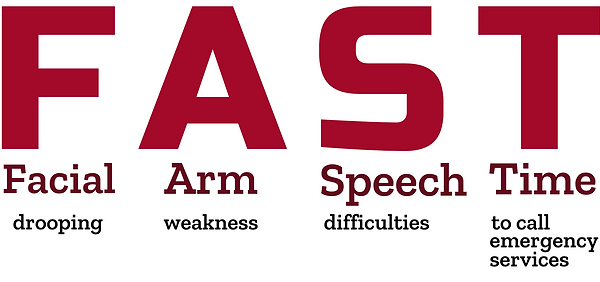A stroke, sometimes called a brain attack, occurs when something blocks blood supply to part of the brain or when a blood vessel in the brain bursts.
In either case, parts of the brain become damaged or die. A stroke can cause lasting brain damage, long-term disability, or even death. Stroke is the No.5 Cause of death in the United States and the leading cause of severe long-term disability. Black women in their 50’s may have triple the risk of stroke compared to White women of the same age.
Almost half of African Americans have a risk factor that can lead to a stroke
- More than 2 in 5 African American women are diagnosed with high blood pressure (greater than or equal to 140/90 mm Hg), which is a much higher rate than white women have.
- African American women are diagnosed with higher rates of obesity (nearly 3 in 5) and diabetes (more than 1 in 8), conditions that increase the risk for stroke.
- Eating too much salt or sodium can raise your blood pressure, putting you at higher risk of stroke. Researchers think there may be a gene that makes African Americans more sensitive to the effects of salt, which in turn increases the risk of developing high blood pressure.
- Sickle cell disease, a common genetic disorder in African Americans, can lead to a stroke. About 1 in 365 black or African American babies are born with sickle cell disease.
- Smoking greatly increases stroke risk. About 1 in 7 African American women smoke.
Why are women at a higher risk of stroke than men?

Higher stroke risk in women might be due to:
- Pregnancy –The risk of stroke in pregnant women is 21 per 100,000, with the highest stroke risk during the third trimester and post-partum. Those with high blood pressure should be treated with medications and monitored closely.
- Preeclampsia – This is high blood pressure that develops during pregnancy. Preeclampsia doubles the risk of stroke later in life. If you have any history of hypertension, talk to your healthcare provider about taking low-dose aspirin starting in the second trimester.
- Birth control pills – Birth control pills have become much safer over time, but women who are already at risk of stroke should take extra precautions. Get screened for high blood pressure before the pill is prescribed. And never smoke while taking oral contraceptives.
- Hormone replacement therapy – This type of therapy should never be used to prevent stroke in post-menopausal women.
- Migraines with aura – Migraine with aura is associated with ischemic stroke in younger women, particularly if they smoke or use oral contraceptives. Smokers with migraines accompanied by aura should quit immediately.
- Atrial fibrillation – This increases stroke risk among women over age 75 by 20 percent.

Look for the S:
- Sudden Numbness on one side of the body
- Sudden Confusion trouble speaking and understanding speech
- Sudden Trouble in one or both eyes
- Sudden Trouble walking, dizziness, loss of balance, and coordination
- Sudden Severe Headache